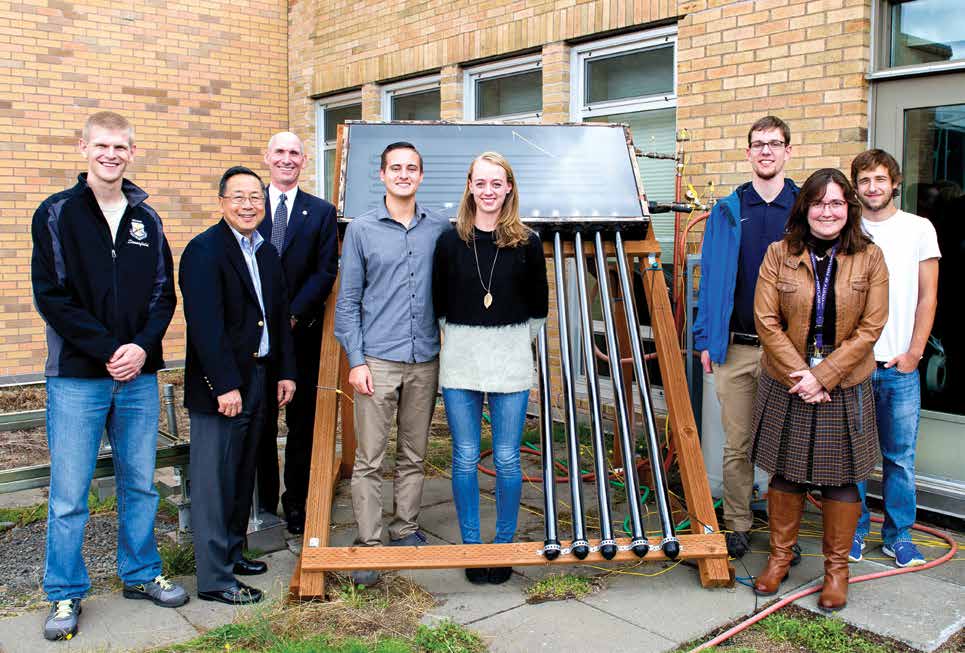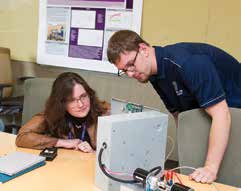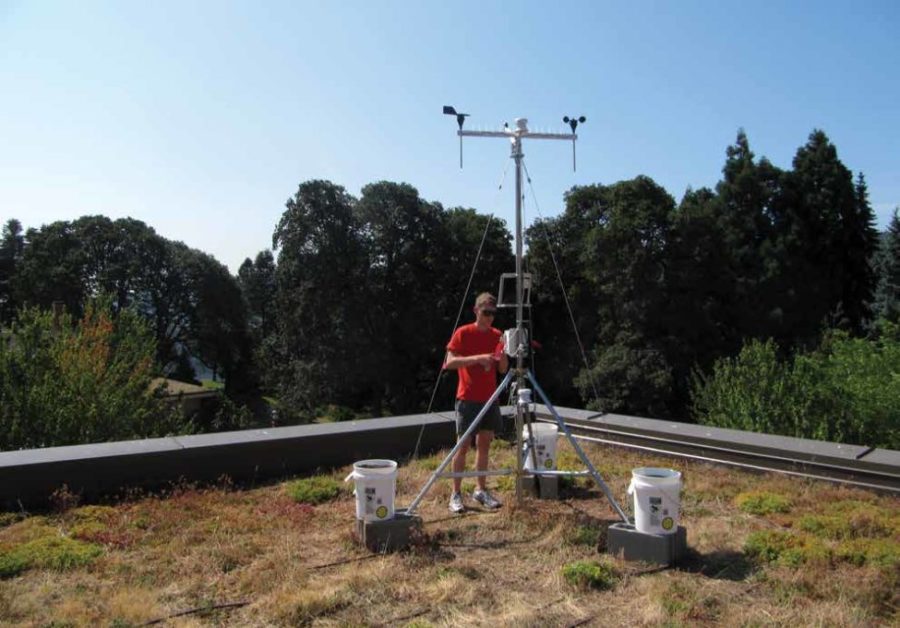Since 2014, The Alliance and the Oregon Community Foundation have partnered to fund projects in Oregon that actively engage Alliance institution faculty and undergraduate students and an industry partner in research focused on conservation. These opportunities have been made available through a grant to The Alliance from the Katherine Bisbee II Fund of the Oregon Community Foundation. Up to two $10,000 grants are awarded each year.



The 2020-2021 Katherine Bisbee II Fund of the Oregon Community Foundation grant ($10,000) has been awarded to George Fox University. The project is entitled “Residential Agrivoltaics: Energy Efficiency and Water Conservation in the Urban Landscape.” George Fox faculty and students will partner with Advanced Energy Systems in Eugene to complete the project.
Agrivoltaics is the co-locating of agriculture and solar photovoltaic (solar PV) panels. The practice involves mounting solar PV panels 6-10 feet off the ground and growing plants (whether they be crops or pasture for animal grazing) below them. While mounting solar PV panels on residential rooftops has become increasingly common in recent years, little is known about the use of agrivoltaics residentially (e.g. placing solar PV panels above landscaping and garden areas on residential properties).
The George Fox University and Advanced Energy Systems project seeks to better understand and quantify the benefits to both water conservation and energy production of residential agrivoltaics. The differences in water use, plant growth, power use, panel efficiencies, and panel operation across five test plots will be assessed.
The 2019-2020 Katherine Bisbee II Fund of the Oregon Community Foundation grants ($10,000 each) were awarded to the University of Portland (UP).
The first project is entitled “After the Eagle Creek Fire: Experiencing the Multnomah Falls in a Burnt Landscape.” UP faculty and students will partner with the U.S. Forest Service for the Columbia River Gorge National Scenic Area to complete the project. The project’s goals are to (1) obtain insights on where visitors go in the Multnomah Falls burnt landscape, (2) gain a better understanding of how visitors experience the Multnomah Falls altered landscape, and (3) add to the research about recreational experiences in burnt landscapes.
The title of the second project is “Intelligent Curbside Recycling: Composition and Contamination Analysis with Intelligence Robotics and Artificial Intelligence.” In this project, UP faculty and students will partner with Oregon Metro’s Property and Environmental Services office and the Department of Solid Waste Services of the Municipality of Anchorage, Alaska. This project will use big data analysis and intelligent robotics to help the recycling industry improve its curbside recycling programs and policies.
Previously funded conservation projects include:
- A study of contaminant loadings in a natural waste water treatment system
- An evaluation of nutrient and metal removal using agricultural byproducts in bioretention systems
- The construction of a hybrid solar collector to enhance performance in the Pacific Northwest
- An analysis of the cooling effect, water retention, and water quality of ecoroofs in the Portland Area

About The Alliance
The Alliance represents 16 of Oregon’s regionally accredited, nonprofit private institutions of higher education. Together, Alliance colleges and universities enroll more than 35,000 students, conferring approximately one in four baccalaureate degrees and about half of the master’s and doctoral degrees awarded in Oregon. More than one in four graduates complete their degrees with zero debt; average debt for those students who graduate with debt is on par with the national and Oregon average. The Alliance intersects the needs of business and industry, with private nonprofit colleges and the public good to create real solutions that build a more educated and skilled workforce for Oregon.
